Join us for a comprehensive session on inclusion, covering various aspects such as evaluating inclusion in development projects or programs, adopting approaches to ensure inclusive evaluation practices, and exploring inclusivity within the evaluation field. Our panelists will share their experiences, including assessing inclusion in project evaluations, utilizing innovative methods to…
Moderator(s)

Kathryn comes to the IEO from the Development Impact Evaluation unit in the Development Economics Research group of the World Bank. Previously, she worked for the World Bank's Independent Evaluation Group where she focused on project, country, and thematic evaluations with an emphasis on including beneficiary voice in evaluations. Kate also worked with the Independent Evaluation Department at the Asian Development Bank and as a Lead Researcher for the Climate and Land Use Alliance. Her sector background includes natural resource management and she has a special interest in participatory development approaches. She holds a Master's in International Development Policy from the McCourt School of Public Policy at Georgetown University.
Presenter(s)
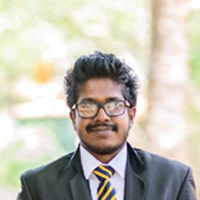
Dulmina Chamathkara is a monitoring and evaluation professional, currently serving as the Monitoring and Evaluation Specialist at the Food and Agriculture Organization of the United Nations Sri Lanka representation. Dulmina earned his degree in Environmental Management from University of Sri Jayewardenepura and his commitment to advancing his expertise led him to obtain a Post Graduate Diploma in Monitoring and Evaluation, also from the University of Sri Jayewardenepura.
Chamathkara's passion for evaluation and his dedication to professionalize evaluation in the region are evident in his role as the co-founder and former co-leader of EvalYouth Asia Chapter and EvalYouth Sri Lanka. Through these roles, he has contributed to nurturing the next generation of evaluators and fostering collaboration within the field.
As an evaluator and researcher, Chamathkara excels in qualitative studies, where his analytical skills and attention to detail shine. He has vast experience in field level M&E and research operations working with different communities in Sri Lanka including indigenous communities.
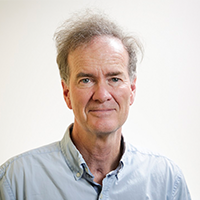
Frank serves as the Head of the Programme Resources and Oversight Unit, located in the Executive Office of the Secretariat of the Basel, Rotterdam and Stockholm conventions. The Unit is responsible for resource mobilization, donor relations and communication, programme implementation oversight, as well as financial mechanisms and resources related to the implementation of the three conventions. Frank also serves as the focal point for the Financial Mechanism of the Stockholm Convention, the Global Environment Facility, and the Special Programme to support institutional strengthening at the national level in the chemical and waste cluster. He is a German national and holds a University degree in Chemistry, an advanced University Degree in Economics, and a PhD on Ethics in Chemistry. Prior to joining the Secretariat (in 2009), Frank worked for the United Nations Industrial Development Organization (UNIDO) in Vienna and the Chemicals Branch of the United Nations Environment Programme (UNEP).
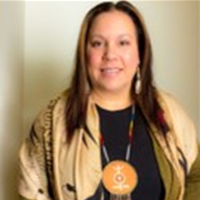
Dr. Bowman, PhD, is a traditional Lunaape/Mohican woman in service to others at the intersection of truth, spirituality, traditional knowledge, sovereignty, governance, and evaluation. She’s been an active Indigenous community member for 40 years and an evaluator for over two decades. She is president of the award-winning Bowman Performance Consulting and an Associate Scientist/Evaluator at the University of Wisconsin–Madison. Dr. Bowman supports projects advancing Indigenous scholarship with Tribal/non-Tribal governments and philanthropic, non-profit, and organizations internationally. She is recognized in several associations including the American Evaluation Association, Center for Culturally Responsive Evaluation and Assessment, Internationally, she is a member of the Canadian Evaluation Society, leadership within EvalIndigenous, Co-creator of “Roots and Relations”, Canadian Journal of Program Evaluation. Finally, Dr. Bowman is the Co-editor for the Journal of Multidisciplinary Evaluation, a special global issue with Dr. Bagele Chilisa.
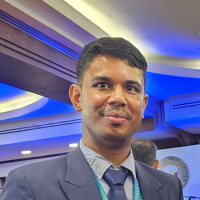
Randika De Mel is currently the manager of Asia Pacific Evaluation Association (APEA) working on managing all APEA programmes including implementation of the Asia Pacific Regional strategy in a systematic manner to advance evaluation culture in the region. He is a former Board Member of Sri Lanka Evaluation Association and Co-Founder of EvalYouth Sri Lanka and EvalYouth Asia; and he has worked in Africa, Asia and Americas on evaluation and social research projects. His research interests are rural livelihoods, gender, Indigenous people, agriculture, and education; works with public sector, NGOs, and academia. Randika’s expertise are in quantitative and qualitative research methods, participatory evaluation methods, ripple effect mapping, agricultural value chains, project management, stakeholder engagement, survey development and administration, intercultural evaluation, and evaluation capacity building.
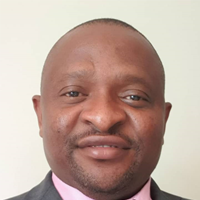
Credentialed Evaluator (CE), Serge Eric is the Co-Chair of EvalIndigenous, Vice-President of the International Development Evaluation Association (IDEAS), Co-Chair of the Coordination Committee of EvalPartners, Former President of the African Evaluation Association (AfrEA), CEO of the Centre for Evaluation and Development (CAED), Member of various evaluation networks/associations such as AEN, CES, and Cameroon Development Evaluation Association (CaDEA). He has 20+ years’ of experience in research and evaluation with Universities (University of Quebec in Montreal, University of Ottawa, Humbolt University in Berlin, Constantine University in Algeria, Institute for Environmental Sciences in Cameroon, United Arab Emirates University in Al Ain), government entities such as Global Affairs Canada, UN agencies, USAID, Islamic Development Bank (IsDB), African Development Bank (AfDB), WorldBank and EU, CBOs and NGOs. As International Evaluation Specialist, he led the design and implementation of over 150 country research initiatives and evaluations worldwide. He has worked in Africa; Europe; North, Central & Latin America; Middle-East; and Asia. He wrote two books and co-authored five books, training materials, +150 reports and articles. He led capacity development trainings in environmental economics, monitoring and evaluation, agricultural research, research methodology and statistics, and related topics for various audiences and organizations worldwide.
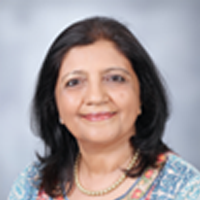
Sonal has over 30 years’ experience in strategic planning, program design, capacity building, mentoring and evaluation. Sonal’s interests relate to how rights, inclusion, local wisdom and gender are addressed across complex human and natural ecosystems. She has co-designed evaluation principles and adapted evaluation approaches that address participation, transformation, decolonisation and feminist thought that challenge evaluation thinking and practice. She is based in India.
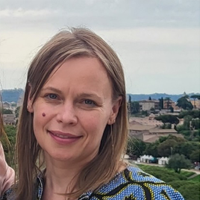
Ms Svetlana Negroustoueva leads Independent Evaluation Function at CGIAR, which deliver science and innovation that advance the transformation of food, land, and water systems in a climate crisis. Svetlana has 20+ years of experience working with the World Bank (GEF and CIFs), the African Development Bank (link), several UN agencies, NGOs, and bilateral agencies (USG and DFID). She has worked on M&E activities at the intersection of R4D, sustainable landscapes, energy, health, food security, gender and social inclusion, and has been an active member of evaluation associations (AEA, EES). At CGIAR, she lead the development of the evaluation guidelines on evaluating Quality of Science, which are currently being applied to the evaluations of three science groups. She represents CGIAR on a Steering Committee of EvalFoward. Svetlana has a passion and expertise is in the domain of gender and evaluation; she was a co-chair of EvalGender+, the global partnership to promote the demand, supply and use of Equity Focused and Gender Responsive Evaluations.




